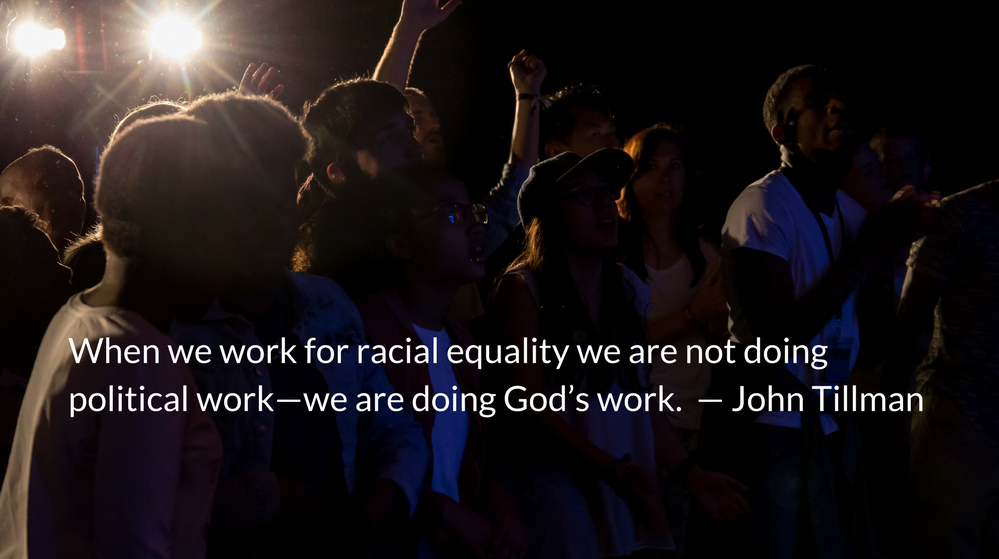Scripture Focus: 1 Corinthians 14.3, 26
But the one who prophesies speaks to people for their strengthening, encouraging and comfort…What then shall we say, brothers and sisters? When you come together, each of you has a hymn, or a word of instruction, a revelation, a tongue or an interpretation. Everything must be done so that the church may be built up.
Reflection: Critique that Builds Up
By John Tillman
As an actor, director, and teacher of theatre, I have a heightened appreciation for many aspects of theatre and a broader palette of theatrical taste than the average entertainment seeker. But in the wrong circumstances I can turn into a cynical critic of performances, spotting errors that others don’t notice and cringing at choices that seem fine to the audience.
A similar thing can happen to those experienced in leading worship in any capacity. When they are not leading, those who are experienced leaders and designers of worship can be the most passionate participants, but can also be the most bitter of critics.
Dissatisfaction with forms of worship is not new. (Jesus clearing the Temple comes to mind.)
In 1 Corinthians 14, Paul seemed especially concerned that Christian worship develop an ordered and discernable form. He desired that the form would have functions both of edification of believers and evangelization of non-believers and outsiders. He wanted believers not to simply be emotionally entertained, but intellectually informed. He wanted believers not to display mere intellectual prowess, but to faithfully demonstrate the power of God.
Paul speaks in the manner of a director giving notes, or a stage manager calling the cues:
“Two or three should speak. No more. Don’t pull focus. Don’t improvise things that are over the audience’s head. If they can’t understand it, they won’t come back. Stop talking over other people’s lines!”
One of the most valuable things that a healthy experience in theatre can teach is how to give and take criticism. You learn to “take the note.” This means to own the mistake, as well as the responsibility for correcting it. When you get a note, you are being called out for an error. But healthy notes are given in love—love for the participant, for the source material, and for the audience.
As critical as Paul is, he never loses the love for what is happening. He doesn’t allow critique to turn bitter and cynical. Paul’s relationship with the Corinthian church is tumultuous and passionate. In the messiness of this scandal-filled church, we see a mirror held up to our modern institutions of worship.
May we seek the passion of Paul for worship done well, without losing his love for worshipers even when they do everything wrong.
May our critiques be loving and build others up—never cynical call-outs and tear downs.
Divine Hours Prayer: The Call to Prayer
Bless God in the congregation, bless the Lord, you that are of the fountain of Israel. — Psalm 68.26
– From The Divine Hours: Prayers for Summertime by Phyllis Tickle.
Today’s Readings
2 Samuel 3 (Listen – 6:35)
1 Corinthians 14 (Listen – 5:40)
Thank You!
Thank you to our donors who support our readers by making it possible to continue The Park Forum devotionals. This year, The Park Forum audiences opened 200,000 free, and ad-free, devotional content. Follow this link to join our donors with a one-time or a monthly gift.
Read more from Lewis on Liturgiology — Part 1
Every service is a structure of acts and words through which we receive a sacrament, or repent, or supplicate, or adore.
Read more from Lewis on Liturgiology — Part 2
The perfect church service would be one we were almost unaware of; our attention would have been on God.











